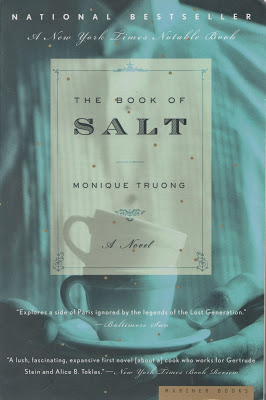The Book of Salt, written by Monique Truong, is one of the reasons that I became an English major. We read this in Professor Comorau’s English 145 class, “Reading the Global Kitchen,” and I continually find myself recommending it to anyone who will listen. Truong’s work fascinated me due to its ability to excellently pose the question of how we, as readers, take narrators at their word, often not ruminating upon the idea that this character may be untruthful and unreliable.
The Book of Salt follows Bình, a gay Vietnamese cook in 1930s Paris, who works for Alice B. Toklas and Gertrude Stein. When Toklas and Stein make a move to America, Bình is faced with a choice: does he return to his childhood home in Vietnam, or does he follow the two women to America? Throughout the text, Bình recounts his own history, as well as that of Alice Toklas and Gertrude Stein, in excellent detail. He gives the reader information that only an insider would know. However, how do we know that his words are the truth? The question of whether or not Bình’s accounts are truthful is reflected throughout the text itself–Bình even comments on his own unreliability as a person within the text, leading the reader to question exactly who can be a reliable narrator.
If you’re itching for more information after reading my post, you can find it here, on Truong’s website.

